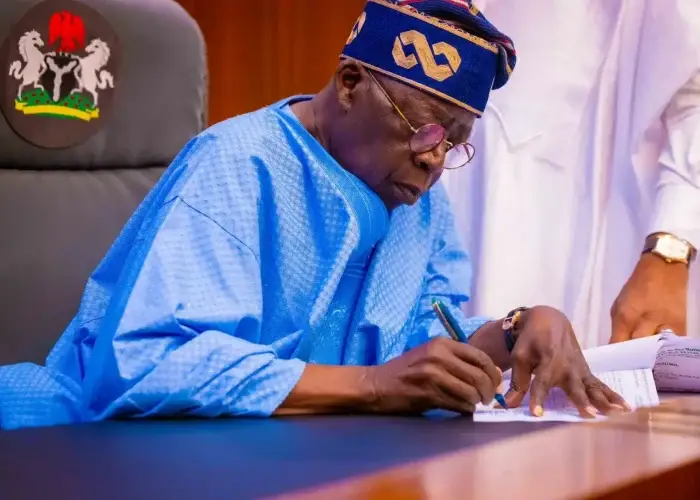President Bola Ahmed Tinubu’s handling of Nigeria’s education system is increasingly drawing criticism, with growing evidence that the same failures seen during his time as Governor of Lagos State (1999–2007) are now repeating themselves on a national scale.
From exam failures and underfunding to decaying infrastructure and underpaid teachers, Tinubu’s presidency is mirroring the same shortcomings that marked his governorship. What was once dismissed as a state-level struggle is now a national crisis, threatening the futures of millions of Nigerian students.
National Exams in Disarray
This year’s West Africa Examination Council (WAEC) and Joint Admissions and Matriculation Board (JAMB) exams have been marred by chaos, with students facing systemic challenges that disrupt their academic progress. Reports from across the country include:
- Computer failures at JAMB centres, leaving students unable to complete or even begin their tests.
- Widespread WAEC malpractice and poor exam conditions, including lack of seats, blackout disruptions, and unsafe buildings.
These failures echo issues that festered during Tinubu’s tenure as Lagos State governor, when exam performance in public schools remained stagnant despite superficial reforms.
The Lagos Years: Cosmetic Reforms, Deep Deficits
While Tinubu has been widely credited with introducing free primary and secondary education in Lagos and funding WAEC/NECO fees, the reality behind the headlines was less glamorous:
- Infrastructure remained in disrepair: Tinubu’s administration launched the Millennium School initiative, but most public schools outside elite pilot zones continued to operate in substandard conditions.
- Quality was ignored: Teacher training and curriculum improvement received minimal attention, and Lagos never cracked the top five in WAEC performance during his tenure.
- Equity gaps persisted: Wealthier districts benefited from political attention, while densely populated areas, such as Ajegunle, Agege, and Ikorodu, saw little meaningful investment.
Critics argue that Tinubu’s education policies were heavy on press releases and light on structural reform, a pattern that has now followed him to the presidency.
From Lagos to Abuja: Same Story, Bigger Impact
Now, as president, Tinubu is presiding over a national education sector plagued by:
- Chronic underfunding: Nigeria’s education budget remains below 8 per cent, far short of UNESCO’s recommended 15–20 per cent.
- Neglect of public institutions: Tertiary institutions face crumbling facilities and frequent strikes, while secondary schools are overburdened and under-equipped.
- Exam dysfunction: The failure to modernise WAEC and JAMB has turned life-changing exams into traumatic experiences for students and families alike.
- Out-of-school crisis: With inflation and hardship rising following subsidy removals, many families have been forced to withdraw their children from school entirely.
- Exam performance remained poor, with Lagos trailing behind states like Anambra and Edo in WAEC rankings.
In short, Tinubu’s national education strategy has replicated the underperformance of his gubernatorial legacy this time with far more devastating consequences.
Public Reaction: Broken Promises
Citizens and education advocates have not remained silent. #FixJAMB and #EducationEmergency are trending hashtags on social media, as students and parents share harrowing stories of a broken system.
Tinubu failed education in Lagos. Now, he’s failing the entire country. History is repeating itself, only worse.
Calls for a state of emergency in education are growing louder, as experts warn that long-term damage to national development could result if foundational education remains in disrepair.
A Legacy of Lost Potential
Bola Tinubu’s second chance to shape Nigeria’s educational future has become a near-missed opportunity. Rather than learning from the inadequacies of his time in Lagos, he has scaled them up with national consequences.
A president who once campaigned on the promise of “Renewed Hope” is now being remembered by many students as the face of repeated disappointment.
Unless bold, corrective action is taken immediately, Tinubu’s legacy in education may be defined not by reform but by replication of failure.

